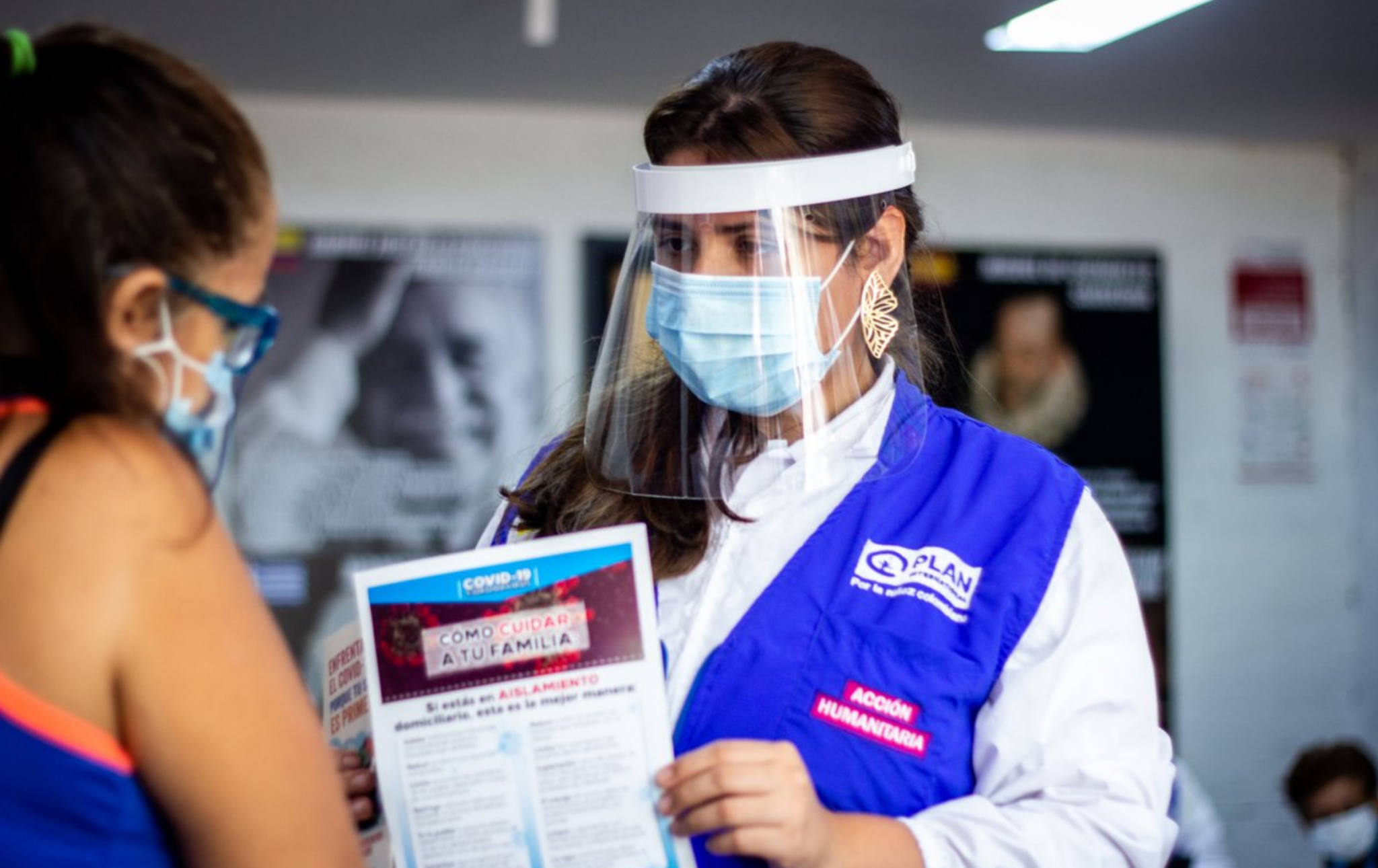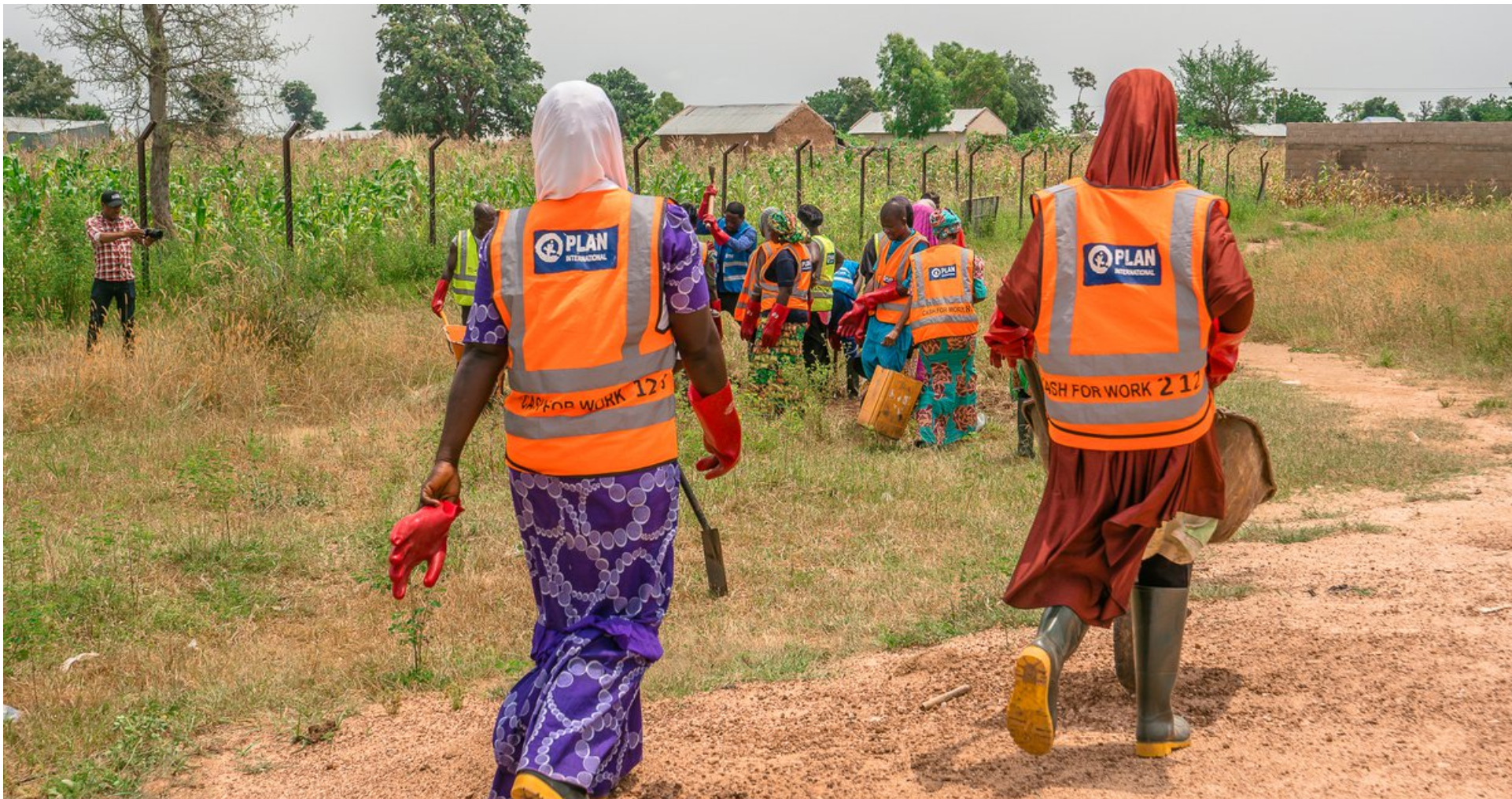Independent Verification – driving change throughout a global organisation
Why did PLAN International decide to start CHS Independent Verification?
PLAN International has long been involved in the development of the Core Humanitarian Standard on Quality and Accountability (CHS). We have always taken accountability seriously, and we have increasingly dedicated resources to this area in the last five years.
Our journey started with a validated CHS self-assessment of the UK country office supported by CHS Alliance, and a benchmarking of the German country office by HQAI. Both helped us to reflect on our strengths and weaknesses. From this internal reflection, we wanted to add an independent and external insight into whether our self-reflection is accurate. We then decided to consolidate different verification exercises under Plan’s Global Hub. Having an external audit is very useful to check that what you have been thinking is going in the right direction. Naturally, PLAN International moved forward to independent verification against the CHS.
Timewise, this discussion coincided with the conversations of national offices with donors, mainly in the UK. These discussions were about a shift towards more accountability and the independent verification of such frameworks. The Disasters Emergency Committee (DEC) made independent verification or certification mandatory for their membership and this helped us to push the argument for it internally. The key was to centralise the responsibility on the independent verification to streamline the learning throughout the organisation.

PLAN International supports the Yukpa people, an indigenous group who have migrated to Colombia from Venezuela. © Plan International.
What surprised you during verification?
A positive outcome from the initial audit was that the findings were in line with our results from the CHS self-assessment and HQAI’s benchmarking. It confirmed the direction of our self-reflection and allowed Plan International to prioritise for the coming years. Areas pointed out as weaknesses in the independent verification audit report were especially helpful for us when creating an action plan.
Unexpected was the significant amount of work for audit preparation and coordination. Plan International put in many administrative and logistic resources and created new roles to accommodate the workload. A good outcome was the creation of dedicated responsibilities under my position for the independent verification against the CHS.
What were your major learnings from being independently verified against the CHS?
Both audits highlighted the need for a change of our feedback and complaint mechanisms related to Commitments 4 and 5 of the CHS. Plan International dedicated resources to re-design and re-think how we do this process. From there, we developed a child-friendly complaint and feedback mechanism and toolkit that is now used throughout our global organisation.
Based on the audit findings, we realised that there is a gap in how you talk to children in different ages, how you communicate with youth groups, and how you create a safe environment for giving feedback. We work in on-set natural disasters and conflict areas but also development contexts, and this has to be taken into account. Therefore, we wanted to create step-by-step guidance that can be adapted to different contexts, different age groups, and with the support of our programme participants. Initially, the audit found a weakness but through our dedication of resources and work, the toolkit became a strength.
The toolkit on the child-friendly complaint and feedback mechanism is a real benefit for the entire sector. Today, peers utilise the tool, it is shared through the IASC result group 2 on accountability & inclusion and through the CHS Alliance’s Accountability to Affected People Community of Practice.
Another area that PLAN International has worked on over the past years is the real-time review of its emergency programmes. These reviews look at large scale emergencies in the first 6-8 weeks and check if the programme is agile enough. A recent change is that PLAN International put the review against the Nine Commitments of the CHS. The outcome is that people use the same language and get a better understanding of the standard which helped tremendously with the familiarisation of the standard. For us, the standard is not simply a poster in the background but translated into everyone’s work.
Recent anti-racism discussions in humanitarian aid and development work, as well as an increased focus on strengthening our feminist leadership both fit nicely within the framework of the CHS. Both are about how to share power responsibly and how we can be a positive partner. For us, the CHS is not a box-ticking exercise but a real discussion on power relations with our programme participants.
Finally, Plan International is a large organisation and change is relatively slow. One important change was a process of socialisation of all humanitarian standards with the leadership. This work was about focussing on the essence of the commitments thereby creating an understanding throughout the leadership. This work was pivotal to drive change. Independent verification has certainly facilitated these conversations.

Plan International Nigeria’s Livelihood and Cash project aims to reconstruct and improve basic and social services as well as livelihoods of conflict-affected population. © Plan International.
Would you recommend other organisations to get independently verified against the CHS?
Independent verification against the CHS has been incredibly interesting and a valuable exercise for PLAN International. It allowed PLAN International to show an external and internal commitment towards accountability to affected populations. Having one standard to form a conversation around is very useful. Independent verification against the CHS allows us to prioritise actions and it ensures that we are continuously learning and improving. Having someone externally that confirms your line of thinking, where to improve and where you have strengths, is very valuable. It gives you an assurance that you are on the right track and it provides you with an internal advocacy tool to set priorities.
This interview originally appeared on HQAI’s website: https://www.hqai.org/en/news/planinternational-story/.
Explore all the CHS verification options.
